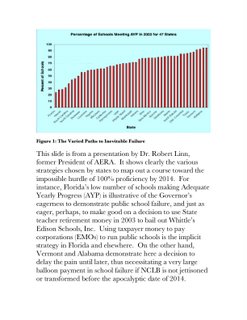The
Philadelphis Inquirer and the
more local Cherry Hill Courier Post have stories on a criminal investigation in Camden, NJ, the same Camden that was focal in Kozol's riveting and sorrowful account of New Jersey urban schools in
Savage Inequalities. This is the same Camden that now continues to struggle, despite an influx of additional school funding that resulted from an protracted lawsuit that ended in a favorable court decision for the historically-ignored urban reservations of poverty in the state.
The crime being investigated? Allegations of cheating on tests. Not only has the local school board hired an investigator to the tune of $28,500, but
get this:
The state Department of Education has already launched an investigation of Carruth's claims, as have the Camden County Prosecutor's Office and the U.S. Department of Education.
Reading Kozol's chapter on Camden, "Children of the City Invincible," it becomes obvious that not much has changed in Camden since 1991. The city is still racked by violence and poverty and an absence of opportunity. Schools are still segregated, and if there are changes that children would notice in the classrooms, now the year-round test preparation that was going on 15 years ago has a script that teachers follow like parrots.
Where are the real criminals responsible for the situation in Camden? Who is responsible for the fact that
"impoverished Blacks are hemmed into jurisdictional wastelands that are . . . 'utterly cut off' from the outside world?" What public school options are available for Camden students to attend schools that aren't on the chopping block, as Camden inevitably falls under the sword of "adequate yearly progress?"
Is Cherry Hill, the rich neighbor, interested in taking any of the children looking for a safe school, a good school that meets AYP? Or does Cherry Hill have its own interests to protect? After all, the racism inherent in our apartheid-supporting national testing system provides Cherry Hill and other schools the justification they need to shun diversity. Remember: just one poor subgroup can make an entire school a failure. Which white community is willing to risk having their own schools being shut down for taking in poor children?
Who are the criminals responsible for coming up with an evaluation system that guarantees the failure of poor people? Who are the thugs in charge of devising this unceasing racist steamroller that makes sure that young minority children come to see themselves as failures before they even know what that means for their futures? Who is investigating these crimes against humanity?
Increased funding under the Abbot ruling has resulted in test score improvements, but how can funding any single instititution address the underlying economic shambles that shapes the lives of most of Camden's inhabitants. Can new books keep a child from getting shot on the way TO school? Can new computers address the hopelessness that exudes from homes where the American dream is just something that taunts from a TV screen? Here is a bit of the Kozol restrospective quoted above from The Black Commentator:
So-called public-private urban educational partnerships were coming into full bloom when Kozol published his book. He recognized the schemes as insidious sources of market justifications of inequality. "Investment strategies, according to [corporate] logic," said Kozol, "should be matched to the potential economic value of each person.
"Future service workers need a different and, presumably, a lower order of investment than the children destined to be corporate executives, physicians, lawyers, engineers. Future plumbers and future scientists require different schooling - maybe different schools. Segregated education is not necessarily so unattractive by this reasoning."
Kozol insists there be no compromise with justice. "Some of the help [corporations] give is certainly of use, although it is effectively the substitution of a form of charity, which can be withheld at any time, for the more permanent assurances of justice."
Kozol's 1991 answer to George Herbert Bush's tentative promotions of public treasury vouchers for private schools, applies equally to his far more aggressive son. "The White House, in advancing the agenda for a "choice" plan, rests its faith on market mechanisms. What reason have the black and very poor to lend their credence to a market system that has proved so obdurate and so resistant to their pleas at every turn."
Kozol's methodology allows us to view his student subjects' exterior worlds. That world tells the children and the reader everything that needs to be known about market forces in America.
It was the market that brought Blacks to East St. Louis in the industrial boom years, and later abandoned them there to be killed by toxic smoke, poisoned water and their own, desperate selves. The market, a captive of racism - or is it the reverse? - kept the cities on the Illinois bluffs above the Black town virtually all-white. The market, not Jim Crow, isolated East St. Louis, and cannot possibly save its children.
In New Jersey, the State Supreme Court, miraculously out of touch with prevailing corporate thought, has caused the distribution of billions of dollars to assure that historically victimized children in Black and brown school districts receive as a right an "efficient and thorough" education. Suburban claims to immunity from the consequences of the pain inflicted on the inner city were given no standing before the bench . . .
. . . . Jonathan Kozol's book is as critical a resource now as when first printed. Inequality has been elevated to a kind of religion by the corporate representatives at the national helm. The battle for democracy and human standards of worth will be truly savage.


